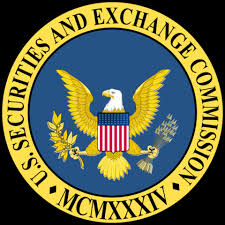
Charges against the embattled former chairman and CEO of Japanese auto giant Nissan Carlos Ghosn and former director Gregory Kelly brought in by the United States Securities and Exchange Commission were settled. The charges against the two former executives were related to false financial disclosures and the false reporting by the duo had allegedly resulted in underreporting of more than $140 million in total compensation.
According to the SEC, starting from 2009 till he was arrested in November of 2018 in Tokyo, Ghosn had allegedly underreported more than $90 million of his pay from Nissan and he was aided significantly by Kelly and others. Increasing Ghosn’s pension by more than $50 million was also included in the scheme.
More than $140 million in undisclosed compensation retirement benefits were omitted by Nissan in its financial disclosures, said the SEC. the commission said that the company however never paid that sum to Ghosn.
The SEC said in a statement that Ghosn and Kelly “crafted various ways to structure payment of the undisclosed compensation after Ghosn’s retirement, such as entering into secret contracts, backdating letters to grant Ghosn interests in Nissan’s Long Term Incentive Plan, and changing the calculation of Ghosn’s pension allowance to provide more than $50 million in additional benefits.”
Nissan was also charged by the SEC of violation of anti-fraud provisions which the company had agreed to settle through a payment of a penalty of $15 million. Accusations against Ghosn of violation of securities laws and Kelly of helping in the violations were brought in by the SEC.
While agreeing to a civil settlement with the SEC, Ghosn agreed to pay a civil penalty of $1 million and agreed not be assume a post of an officer or director of a public company for a period of 10 years. On the other hand, a settlement with Kelly comprised of the executive agreeing to a $100,000 penalty, a bar as an officer and director for a period of 5 years and would not be allowed to appear as an attorney for five years as an attorney before the commission.
“Simply put, Nissan’s disclosures about Ghosn’s compensation were false,” said Steven Peikin, co-director of the SEC’s division of enforcement. “Through these disclosures, Nissan advanced Ghosn and Kelly’s deceptions and misled investors, including U.S. investors.”
The SEC said that while making the settlement, neither Ghosn nor Kelly admitted or denied the allegations and findings.
“We are pleased to have resolved this matter in the U.S. with no findings or admission of wrongdoing,” said the defense team of the former CEO’ in a statement,
Alongside the ongoing Japanese criminal proceedings, a parallel investigation was also carried out by the SEC, the lawyers of Ghosn also added. “The SEC settlement expressly permits Mr. Ghosn to continue to contest and deny the factual and legal allegations against him in the criminal proceedings in Japan, and Mr. Ghosn fully intends to do so,” they said.
Ghosn and his team “remain confident that, if given a fair trial, he will be acquitted of all charges and fully vindicated.”
(Source:www.cnbc.com)
According to the SEC, starting from 2009 till he was arrested in November of 2018 in Tokyo, Ghosn had allegedly underreported more than $90 million of his pay from Nissan and he was aided significantly by Kelly and others. Increasing Ghosn’s pension by more than $50 million was also included in the scheme.
More than $140 million in undisclosed compensation retirement benefits were omitted by Nissan in its financial disclosures, said the SEC. the commission said that the company however never paid that sum to Ghosn.
The SEC said in a statement that Ghosn and Kelly “crafted various ways to structure payment of the undisclosed compensation after Ghosn’s retirement, such as entering into secret contracts, backdating letters to grant Ghosn interests in Nissan’s Long Term Incentive Plan, and changing the calculation of Ghosn’s pension allowance to provide more than $50 million in additional benefits.”
Nissan was also charged by the SEC of violation of anti-fraud provisions which the company had agreed to settle through a payment of a penalty of $15 million. Accusations against Ghosn of violation of securities laws and Kelly of helping in the violations were brought in by the SEC.
While agreeing to a civil settlement with the SEC, Ghosn agreed to pay a civil penalty of $1 million and agreed not be assume a post of an officer or director of a public company for a period of 10 years. On the other hand, a settlement with Kelly comprised of the executive agreeing to a $100,000 penalty, a bar as an officer and director for a period of 5 years and would not be allowed to appear as an attorney for five years as an attorney before the commission.
“Simply put, Nissan’s disclosures about Ghosn’s compensation were false,” said Steven Peikin, co-director of the SEC’s division of enforcement. “Through these disclosures, Nissan advanced Ghosn and Kelly’s deceptions and misled investors, including U.S. investors.”
The SEC said that while making the settlement, neither Ghosn nor Kelly admitted or denied the allegations and findings.
“We are pleased to have resolved this matter in the U.S. with no findings or admission of wrongdoing,” said the defense team of the former CEO’ in a statement,
Alongside the ongoing Japanese criminal proceedings, a parallel investigation was also carried out by the SEC, the lawyers of Ghosn also added. “The SEC settlement expressly permits Mr. Ghosn to continue to contest and deny the factual and legal allegations against him in the criminal proceedings in Japan, and Mr. Ghosn fully intends to do so,” they said.
Ghosn and his team “remain confident that, if given a fair trial, he will be acquitted of all charges and fully vindicated.”
(Source:www.cnbc.com)





